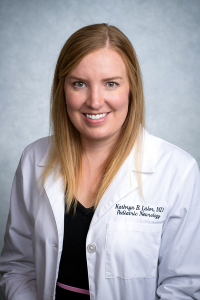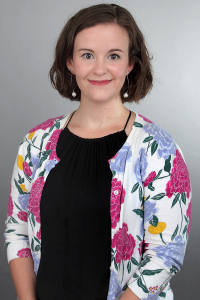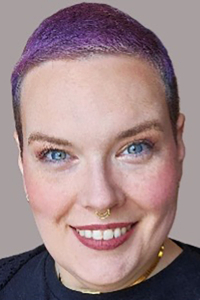The Department of Pediatric Neurology Epilepsy Fellowship Program at UAB is an ACGME accredited one-year program. We provide each trainee with the clinical experience and didactic structure to prepare for independent practice in any setting as a fully qualified pediatric epileptologist. This goal is accomplished through a combination of supervised clinical exposure in both the inpatient and outpatient settings as well as structured educational conferences throughout the training period.
Our fellows gain expertise in evaluating and treating all seizure and epilepsy types with a full range of management options including medications, diet therapy, neurostimulation, and all surgical modalities. Additional exposure to intraoperative monitoring, clinical trial participation, and localization modalities is available.
We are the only Level IV pediatric epilepsy center in Alabama according to the National Association of Epilepsy Centers. This designation indicates the highest possible level of clinical care for children and adolescents with epilepsy. We are also one of only two centers in the southeastern United States with a clinical magnetoencephalography (MEG) laboratory, and one of only 21 member sites of the American Clinical MEG Society. The Center receives referrals from throughout the state of Alabama and all neighboring states, resulting in a high patient volume for initial evaluation/diagnosis of seizures, management of epilepsy, as well as consideration of epilepsy surgery.
We have all the tools necessary for a comprehensive presurgical evaluation for drug-resistant epilepsy, including: 3/5/7T MRI, fMRI, MEG/MSI, PET, ictal/interictal SPECT/SISCOM, intracarotid sodium amobarbital procedure (Wada), neuropsychological evaluation, intracranial EEG with stereo-EEG or grid/strip electrocorticography (ECoG) with cortical mapping. Children’s of Alabama and UAB have state-of-the-art surgical suites with intraoperative MRI for precision laser interstitial thermal therapy (LITT). Patients who are not candidates for curative surgical resection may be offered various other medication-sparing treatments including corpus callosotomy, diet therapy, responsive neurostimulation (RNS), deep brain stimulation (DBS), or vagus nerve stimulation (VNS) devices.
Mission
The mission of the Pediatric Epilepsy Fellowship Program at UAB/COA is to provide comprehensive training, such that fellows will emerge as experts in the thorough evaluation and medical/surgical management of epilepsy. Fellows will learn the clinical skills necessary to provide high-quality, patient-centered care in independent practice. The fellowship will also foster intellectual curiosity and introduce fellows to the process required for the pursuit of knowledge through research.
Program Information
-
How to Apply
Applications to the Pediatric Epilepsy Fellowship Program must be submitted through the Electronic Residency Application Service (ERAS) of the National Residency Matching Program (NRMP). Fellows must have completed an ACGME-accredited residency in child neurology in the US or Canada.
All positions will be filled through the NRMP. For information about registering, please contact the National Residency Matching Program. Click here to visit their website or contact them by phone at 866-653-6767.
Applications are submitted from November through December. Interviews are held from January through March.
Interview Process
The program directors and coordinator will review applications and a letter of invitation will be sent to applicants who are considered strong candidates for the UAB Pediatric Epilepsy Fellowship Program. Applicants will self-schedule using THALAMUS, which integrates with ERAS.
-
Block 1
LTM/Routine
(COA)
Outpatient %: 10
Research %: 20
Block 2
EMU
(COA)
Outpatient %: 10
Research %: 0
Block 3
LTM/Routine
(UAB)
Outpatient %: 10
Research %: 0
Block 4
Elective
Research %: 20
Block 5
EMU
(COA)
Outpatient %: 10
Research %: 0
Block 6
LTM/Routine
(COA)
Outpatient %: 10
Research %: 20
Block 7
EMU
(COA)
Outpatient %: 10
Research %: 0
Block 8
EMU
(UAB)
Outpatient %: 10
Research %: 0
Block 9
LTM/Routine
(COA)
Outpatient %: 10
Research %: 20
Block 10
EMU
(COA)
Outpatient %: 10
Research %: 0
Block 11
LTM/Routine
(COA)
Outpatient %: 10
Research %: 20
Block 12
EMU
(COA)
Outpatient %: 10
Research %: 0
Key
COA: Children’s of Alabama
UAB: University of Alabama at Birmingham
EMU: Epilepsy Monitoring Unit: read EEGs, participate in direct care of admitted patients
LTM: Long Term EEG Monitoring (reading EEGs ongoing in the hospital)EMU: Epilepsy Monitoring Unit
Fellows will read EEGs and round with the on-service attending. No overnight call will be required. Weekend work will only be required in the case of ongoing surgical work-ups in cases where critical learning opportunities, such as cortical mapping, may be done on weekend days. The EMU team will also consist of 2 nurse practitioners, multiple technologists, the epilepsy fellow, and the attending epileptologist. During these months, the fellow will read routine EEGs on Mondays.LTM: Long term monitoring (ICU and bedside continuous video EEG)
Fellows will be reading EEGs with the on-service attending. One week of each LTM block will be spent reading routine EEGs. These will be read and staffed each day with the attending epileptologist assigned to that day of the week.UAB: University of Alabama at Birmingham
Fellows will spend at least 1 month in the adult epilepsy division which will be split between adult LTM reading and the adult EMU. Outpatient clinics will be attended during LTM weeks.Clinic
Fellows will spend one half day each week in epilepsy clinic, rotating through each epileptologists’ clinics. 2-3 patients will be assigned to the fellow each clinic to share with the epileptologist through the year to gain experience in longitudinal outpatient epilepsy management.
Elective
Fellows can choose any epilepsy or epilepsy-related subtopic at either the COA or UAB site. Possible electives include but are not limited to: Advanced outpatient epilepsy management, Sleep Medicine, Intraoperative Monitoring, Source Localization, Neuroradiology, Neuro Critical Care, Neurosurgery, Adult Epilepsy Clinics, and Research.
Vacation
Vacation can be taken during elective months and any LTM block.
-
Ketogenic Diet Clinic is a twice-a-month clinic run by Drs. Mohamed and Kankirawatana with a dedicated nutritionist, Helen Morgan. Patients are admitted to the neurology service for diet therapy initiation and then followed regularly in clinic.
Tuberous Sclerosis Clinic is a weekly clinic run by Dr. Martina Bebin at UAB, who focuses exclusively on tuberous sclerosis patients. This clinic sees patients of all ages from the region and beyond. The epileptologist works closely with Dr. Bebin when these patients need additional management of epilepsy, including surgical work ups.
Neuromodulation Clinic occurs every Wednesday afternoon. Patients with neurostimulation devices, such as RNS, VNS, and DBS, are followed in this clinic for device adjustments and ongoing epilepsy management.
Adolescent Epilepsy and Pregnancy Clinic is run by Dr. Lalor. This clinic occurs as needed to consult with young adult patients with epilepsy who become pregnant. They are followed in clinic and monitored closely throughout their pregnancy.
Epilepsy Transition Clinic occurs weekly at UAB in the adult epilepsy clinic and is attended by Drs. Lalor and Thaggard, along with adult epileptologists Drs. Tamula and Vo. This clinic facilitates a standardized and streamlined process for young adults with epilepsy as they transfer care from the pediatric to adult health care system.
STEP Clinic is a weekly multi-disciplinary clinic for young adults with complex care needs who are transferring from the pediatric to adult healthcare systems. This clinic is run by medicine-pediatrics providers but includes many specialties, including epilepsy. It is staffed by the attendings who work in the epilepsy transition clinic.
-
- Boot Camp - a lecture series during the first month of fellowship, aimed at familiarizing fellows with reading and interpreting EEGs, as well as epilepsy diagnosis and management. This series is combined with the adult epilepsy fellowship.
- Noon Conference - held on a weekly basis covering various topics in epilepsy across the lifespan. Once a month these lectures are combined with the adult epilepsy fellowship.
- Journal Club - held once a month during noon conference where fellows present seminal journal articles or articles with new research findings.
- Epilepsy Surgical Conference - held weekly to discuss pediatric cases of refractory epilepsy undergoing pre-surgical workup and interventions.
- Neurology Grand Rounds - held weekly with lectures covering topics of interest in neurology (optional).
- Pediatric Grand Rounds – held weekly with lectures covering topics of interest in pediatrics (optional).
-
Each fellow is paired with a faculty member based on area of interest to guide professional development. Fellows meet with their mentor quarterly for advice regarding career development and any other interests or concerns.
-
Fellows have many opportunities to participate in scholarly activity and quality improvement projects. The Pediatric Epilepsy Program has research program that has grown dramatically in recent years with multiple active clinical drug trials, quality improvement projects, and clinical outcome studies.
-
- 8-bed Epilepsy Monitoring Unit at Children’s of Alabama (COA)
- 12 continuous video EEG machines at COA and UAB for monitoring neonates, children, and adolescents
- 10-20 outpatient EEGs done per day
- 60-70 epilepsy surgeries performed per year
- 8-bed Epilepsy Monitoring Unit at Children’s of Alabama (COA)
-
Fellows at UAB receive salary that is commensurate with their level of training, ensuring they are competitively compensated for their dedication and work. Comprehensive insurance coverage is available at a low cost, ensuring fellows and their dependents have access to health, dental, and vision care without undue financial burden. An annual educational allowance of $1500 is provided to fellows to support their academic growth, which can be used for purchasing books, attending a conference, or other educational needs.
Click here for more information.
Our Team


